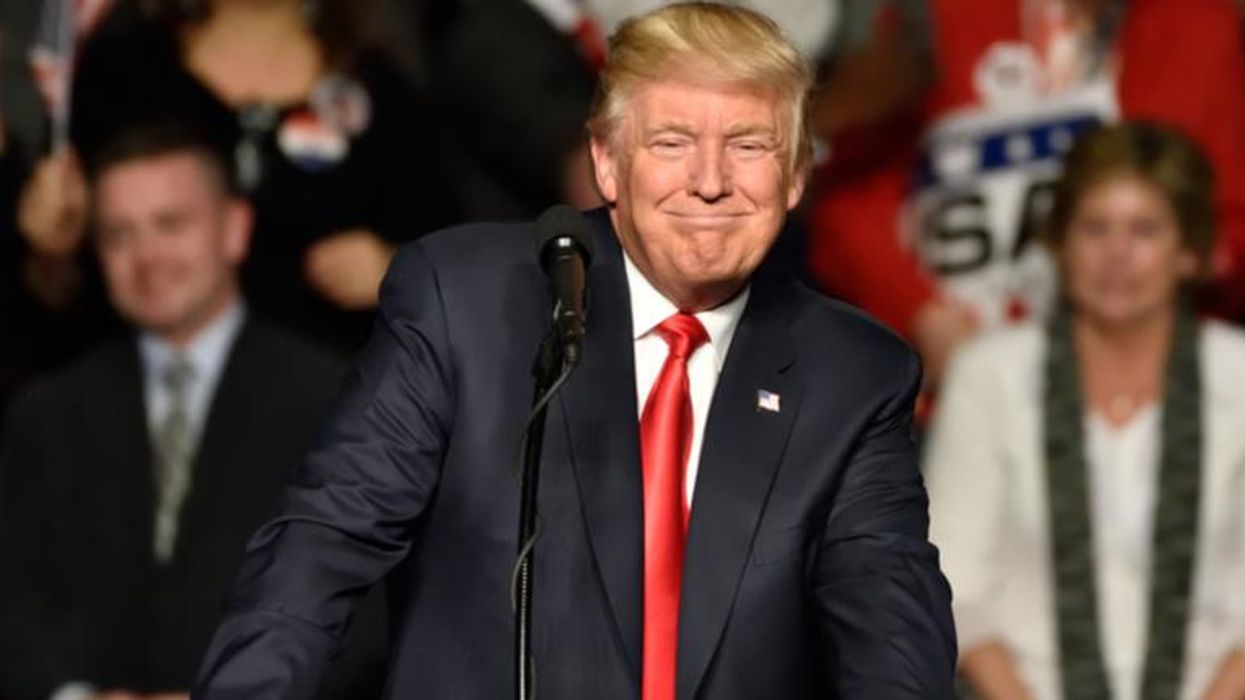The DC Circuit Court of Appeals panel that heard oral arguments from former President Donald Trump's lawyers in favor of absolute presidential immunity has still not issued a ruling after more than weeks. A Washington Post columnist is arguing that the court's slow pace hurts both justice and democracy.
In a Friday essay, Post associate editor Ruth Marcus lambasted the three judges on the panel — Michelle Childs, Karen Henderson and Florence Y. Pan — for their ongoing foot-dragging in handing down a decision that will definitively state whether Trump is immune from criminal prosecution for acts committed during his time in the White House. She argued that each passing day helps Trump in his overall goal to evade a conviction in a criminal trial until after the November election — when his second administration could theoretically have the federal cases against him dismissed, or a conviction overturned with a presidential pardon to himself.
"Under ordinary circumstances, it can take months for appellate judges to produce a ruling. In the current case, this delay borders on unconscionable. It plays right into Trump’s hands," Marcus wrote. "Unconscionable is a strong word, but one that’s warranted here. Consider: It took just 18 days after oral argument for a different panel of the U.S. Court of Appeals for the D.C. Circuit to produce a well-reasoned, 68-page opinion largely rejecting Trump’s challenge to the gag order issued against him by the trial judge. The issues of law posed by the immunity case are no more complex."
READ MORE: Chutkan slams Trump in latest ruling rejecting immunity argument: No 'divine right of kings'
Marcus then called for "strict supervision and swift action" to prevent the former president from exploiting the appeals process to burn months off the calendar, then use the nominating convention and general election to justify postponing the trials until after the election.
If he does so, Marcus argued, this would deprive voters of the ability to cast a ballot without fully knowing whether a candidate was guilty of a crime. She justified this argument by pointing to polls showing that many of Trump's supporters would change their minds about voting for him if he was convicted of a crime.
"If, as expected, the panel rules against Trump, he is entitled to ask the full appeals court for rehearing, and then to seek Supreme Court review... Once the appeals are finished, Trump’s lawyers will receive extra time to resume pretrial preparations," she wrote. "That means it will be difficult, if not impossible, to conclude any trial by the time of the Republican National Convention, which gets underway July 15."
Marcus urged both the DC Circuit Court of Appeals and the Supreme Court to "frustrate this kind of gamesmanship" by being more strict with deadlines and allowing pre-trial preparation to move forward while judges considered appeals, adding that "justice has been delayed enough already."
READ MORE: Judge Tanya Chutkan strikes Trump's March 4 election interference trial date from calendar


